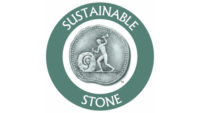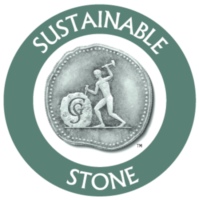The Natural Stone Council (NSC) announced recently
that it is working with Ecoform, an environmental analysis firm, and NSF
International, an accredited standards development organization, to develop a
sustainability standard for natural stone products.
• The standard is intended to offer the following benefits to the stone
industry:
• Establish a set of well-defined environmental and human health metrics
recognized by the green building movement as an indicator of leadership
sustainability performance.
• Provide an important opportunity to educate key members of the green building
movement, government and environmental advocacy groups about the production of
stone products.
• Create a mechanism that rewards natural stone companies that demonstrate
environmental leadership through commitment to sustainable operations and
continued innovation.
• Proactively address potential stone-related environmental and human health
concerns in a multi- stakeholder, science-based forum (i.e. radon, dust,
etc.).
• Harmonize national and international environmental requirements for stone
quarrying and production.
• Encourage transparent chain of custody reporting in support of LEED credits
for locally produced materials.
• Create parity between stone and other competitive products covered by
existing certification programs.
The NSC standard will be developed under the American National Standard
Institute’s (ANSI) Essential Requirements for adoption as an ANSI Standard. NSF
International will be administering the process for NSC. The ANSI Standard
development process ensures that the standard is developed in a balanced, open
and collaborative manner with participation from multiple stakeholders to avoid
potential conflicts of interest. A consensus committee made up of public agency
officials, academics, non-governmental agencies, industry leaders and product users
helps develop and vote on the standard, while a group of subject matter experts
provides insight and guidance. Subsequent mandatory public comment periods
allow individual stakeholders and organizations to participate in the
development process. The standard is expected to be completed in early spring
of 2012.
NSF International, an independent, not-for-profit organization certifies
products and writes standards for food, water and consumer goods to minimize
adverse health effects and protect the environment, and more information can be
found at www.nsf.org. Founded in 1944, NSF is committed to protecting human
health and safety worldwide and operates in more than 120 countries. NSF is a
World Health Organization Collaborating Centre for Food and Water Safety and
Indoor Environment.
National Stone Council to develop comprehensive sustainability standard for natural stone

